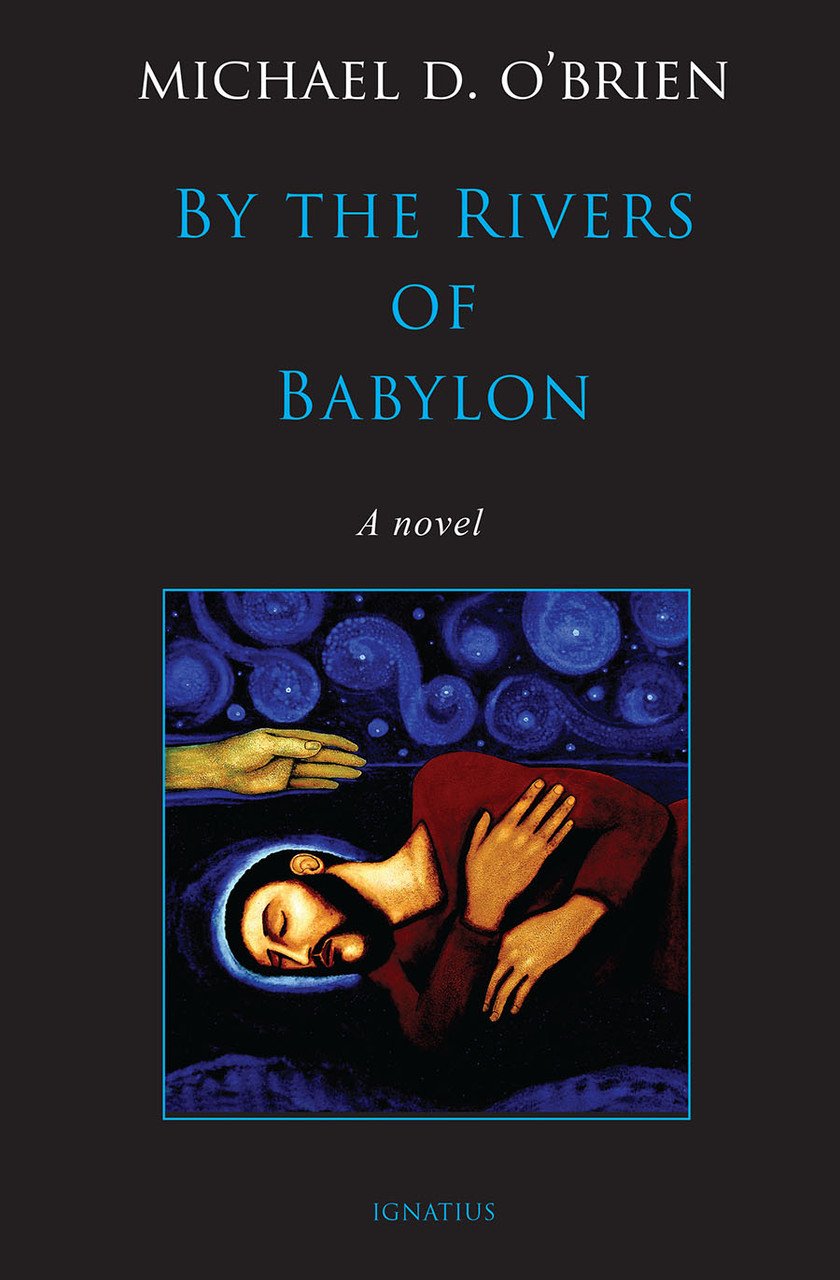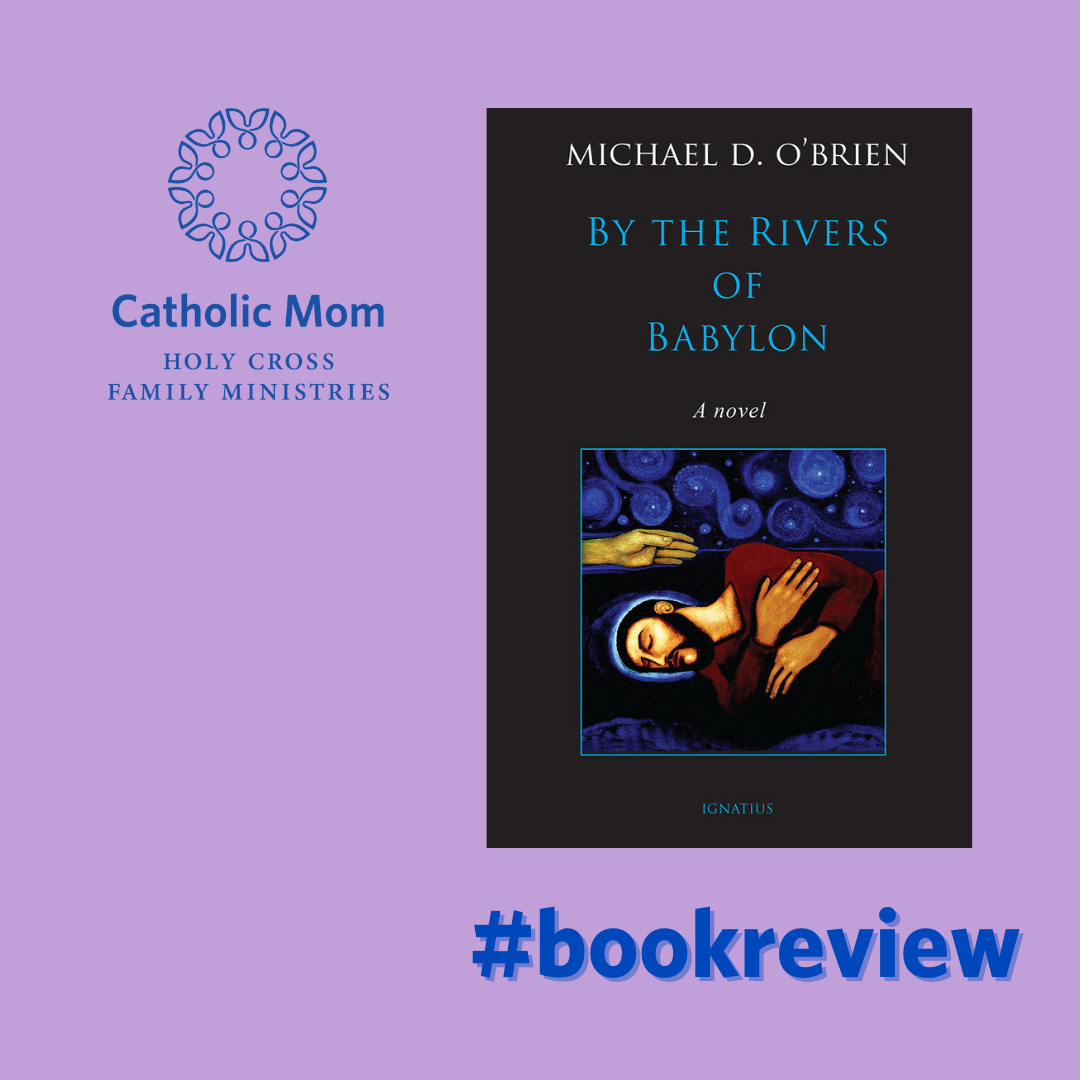
Kate Taliaferro reviews Michael D. O’Brien’s newest novel, which imagines the early life of the prophet Ezekiel.
Because of the distance of time between today and Biblical days, it can be difficult to fully appreciate the world during which the Bible was written. We rely on ancient texts, cultural traditions, and the inspiration of the Holy Spirit to reveal to us what life could have been like during the Israelites wandering in the wilderness, the glory of David’s kingship, or times of exile. We are also blessed by the imaginations of authors such as Michael D. O’Brien who, through his new book, By the Rivers of Babylon, can open up for us a whole new perspective on a particular moment in Biblical history.

O’Brien has crafted a beautiful book about the early life of the prophet Ezekiel, or Yezekiel in the Hebrew O’Brien utilizes. I was entranced by this book and the gentle way O’Brien unfolds the young Ezekiel’s life. The inside of the dust jacket includes the question, “What makes a prophet?” I found this to be a poignant question. While the book thoughtfully unfolds moments of Ezekiel’s life which are clearly preparatory for his eventual calling to be a prophet to the exiles, O’Brien also invites the reader to consider what God could be preparing them for someday. Do we each have a unique purpose to which God is calling us? How is God using today to prepare us for the tomorrow we do not yet see?
I’ll share one quote as an example:
I am carefully fitting corner bricks to overlap with bricks of the adjoining wall. Ah, if only I could mold a whole wall in an instant, go my thoughts. I could carry it here on my shoulders. I could put four walls together and make a house in the blink of an eye.
Then I smile at the notion. Life is like this, I remind myself. You cannot move a whole wall on your shoulders. You move the wall brick by brick. This is how God as built Israel, little by little, step by step. (Pg 178).
What a beautiful, timeless insight into the human heart. We want things to happen immediately. We want quick answers, minimal waits, instant gratification. The story of Ezekiel through O’Brien’s imagination is one of slowness, anticipation, and difficult waiting. Instead of lashing out against their conquerors, Ezekiel offers a prayerful approach. He trusts in God’s plan for His people and continually unites himself to that plan through simple acts of love and generosity. He also would have been a man immersed in the psalms, which O’Brien does a masterful job of weaving into all sections of the book. Through these psalm-prayers of Ezekiel, we are able to witness a powerful form of praying in, with, and through the words of Scripture.
You know you’ve found a good book of Biblical historical fiction when the first thing you want to read after finishing is the book(s) of the Bible referenced. This is exactly how I felt and what I did upon closing By the Rivers of Babylon.
I cannot encourage everyone enough to find the time to read this book, and then to go on to read through the book of Ezekiel. I am already planning a second read-through, likely of both.
Ask for By the Rivers of Babylon at your local Catholic bookseller, or order online from Amazon.com or the publisher, Ignatius Press.

Copyright 2023 Kate Taliaferro
Images: Canva
About the Author

Kate Taliaferro
Kate Taliaferro is an Air Force wife and mom of 6. She has a Masters in Religious Education and tries to find God's presence in all parts of her day, be it cooking, cleaning or just the everyday ordinary. She enjoys homeschooling, stitching crafts and finding cheerios between the couch cushions. She blogs at Daily Graces.


.png?width=1806&height=731&name=CatholicMom_hcfm_logo1_pos_871c_2728c%20(002).png)
Comments